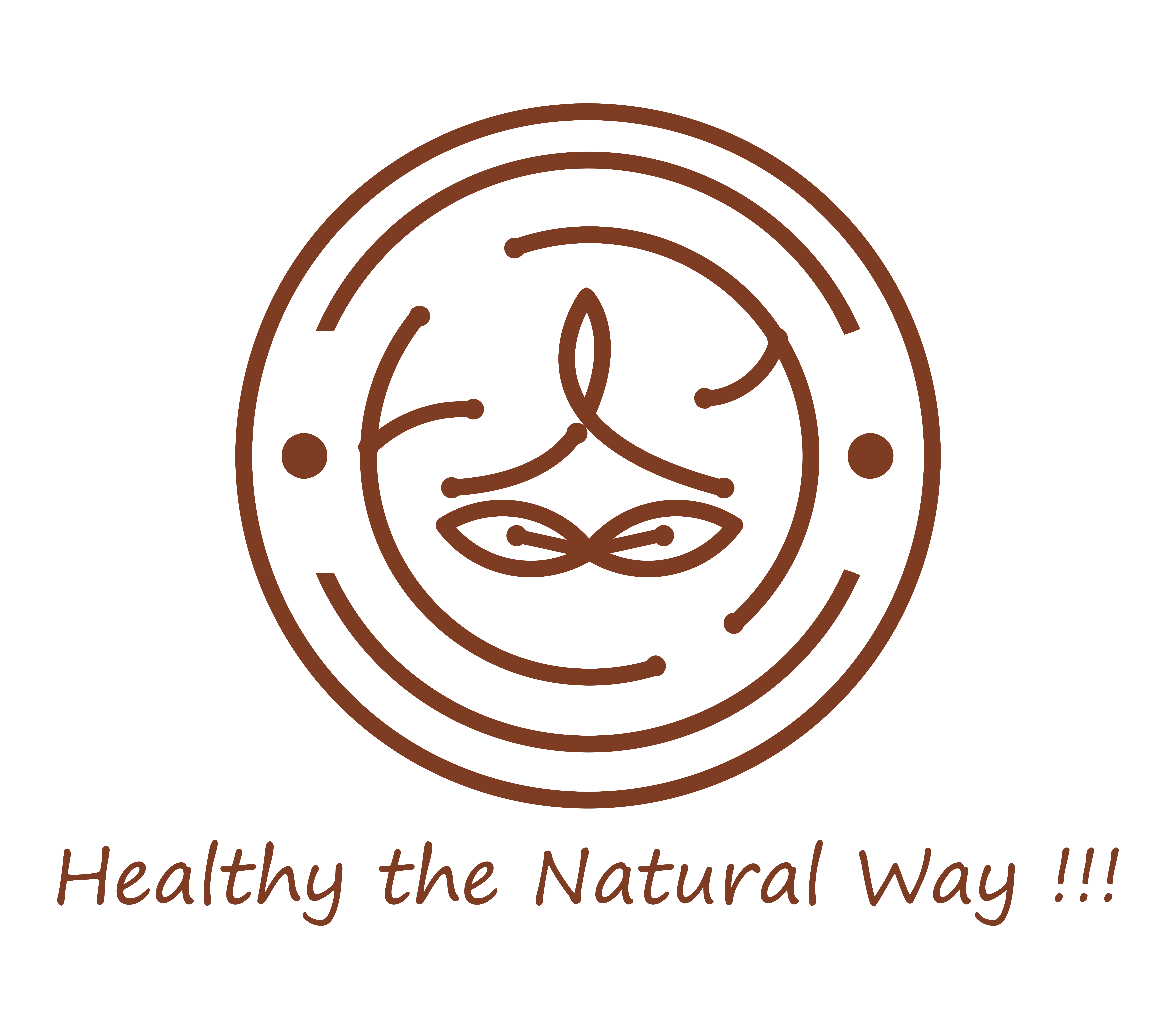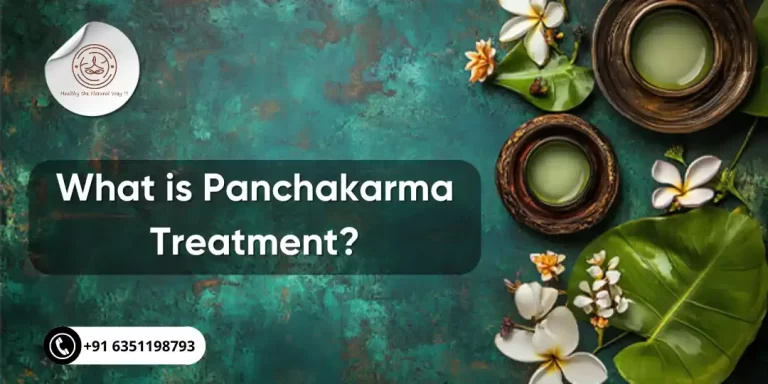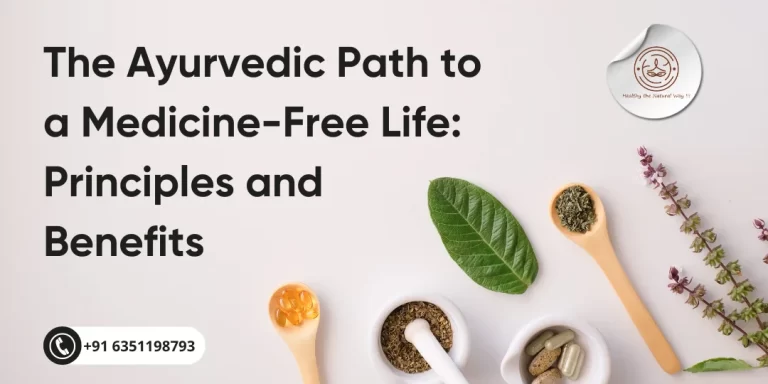Ayurveda and allopathy are two distinct systems of medicine with different approaches and principles. Ayurveda, an ancient Hindu method of therapy, focuses on holistic treatment using natural ingredients to address imbalances in the body.On the other hand, allopathy emphasizes the diagnosis and treatment of diseases using well-researched, evidence-based medicines and medical procedures. The debate between these two systems has persisted for a long time, but recently, Ayurveda has gained popularity due to its natural and permanent resolving treatment methods.This article explores the differences and benefits of both systems to help individuals choose the most suitable treatment method for themselves. Nutrition: The Foundation of Health Understanding Nutrition Nutrition is the science of Aahar (food) and its relationship to health. Ayurvedic Nutrition is deeply connected to the ancient Indian holistic health system of Ayurveda, which emphasizes the balance of mind, body, and spirit.Central to this practice is the concept of “doshas,” which are biological energies—Vata, Pitta, and Kapha—that govern various physical and mental processes within the body. This system not only focuses on nutrition but also encompasses lifestyle, exercise, and herbal remedies to maintain overall well-being. Principles of Ayurvedic Nutrition Personalized ahar Plans Ayurvedic nutrition considers individual constitution (Prakriti) to tailor dietary recommendations. Each person has a unique combination of doshas, and their diet should align with this balance. Seasonal Eating Adjusting diet according to seasonal changes is crucial in Ayurveda. Different seasons aggravate different doshas, and dietary adjustments help maintain balance. For instance, cooling foods are preferred in summer to balance …

Ayurveda and allopathy are two distinct systems of medicine with different approaches and principles. Ayurveda, an ancient Hindu method of therapy, focuses on holistic treatment using natural ingredients to address imbalances in the body.
On the other hand, allopathy emphasizes the diagnosis and treatment of diseases using well-researched, evidence-based medicines and medical procedures. The debate between these two systems has persisted for a long time, but recently, Ayurveda has gained popularity due to its natural and permanent resolving treatment methods.
This article explores the differences and benefits of both systems to help individuals choose the most suitable treatment method for themselves.
Nutrition: The Foundation of Health
Understanding Nutrition
Nutrition is the science of Aahar (food) and its relationship to health. Ayurvedic Nutrition is deeply connected to the ancient Indian holistic health system of Ayurveda, which emphasizes the balance of mind, body, and spirit.
Central to this practice is the concept of “doshas,” which are biological energies—Vata, Pitta, and Kapha—that govern various physical and mental processes within the body. This system not only focuses on nutrition but also encompasses lifestyle, exercise, and herbal remedies to maintain overall well-being.
Principles of Ayurvedic Nutrition
Personalized ahar Plans
Ayurvedic nutrition considers individual constitution (Prakriti) to tailor dietary recommendations. Each person has a unique combination of doshas, and their diet should align with this balance.
Seasonal Eating
Adjusting diet according to seasonal changes is crucial in Ayurveda. Different seasons aggravate different doshas, and dietary adjustments help maintain balance. For instance, cooling foods are preferred in summer to balance Pitta.
Natural and Whole Foods
Emphasis is placed on consuming fresh, unprocessed foods that are locally sourced and seasonally available. Whole grains, legumes, fresh vegetables, fruits, and natural sweeteners are staples of an Ayurvedic diet.
Mindful Eating
Encouraging awareness and mindfulness during meals enhances digestion and absorption. This includes eating in a calm environment, chewing thoroughly, and avoiding distractions like television or smartphones.
Viruddh Ahar (Incompatible Foods)
Ayurveda identifies certain food combinations that are incompatible and can cause health issues. For example, milk and fish are considered viruddhaahar because their combined qualities can disturb digestion and create toxins in the body.
Allopathy: Modern Medical Science
Understanding Allopathy
Allopathy, also known as conventional Western medicine, is a system of medical practice that is based on the use of pharmacologically active agents or physical interventions to address and alleviate symptoms or pathophysiological processes associated with diseases or health conditions.
It relies on evidence-based practices and encompasses a broad spectrum of treatment modalities, including but not limited to medications, surgical procedures, and various other interventions aimed at managing and improving the health of patients.
Key Aspects of Allopathy
Symptom Management
Allopathy often focuses on alleviating symptoms through medication. For instance, antibiotics are used to treat bacterial infections, and painkillers are prescribed for pain relief.
Advanced Diagnostics
Utilizes sophisticated diagnostic tools and tests to identify health issues accurately. Techniques such as blood tests, radiological scans and genetic testing help in precise diagnosis.
Acute Care
Allopathy is highly effective in emergency situations and acute conditions. Emergency surgeries, trauma care, and intensive care units (ICUs) are hallmarks of allopathic medicine.
Research and Development
Continuous advancements through clinical trials and research lead to the development of new treatments and drugs. This constant evolution helps in managing diseases that were once considered incurable.
Ayurveda: Ancient Wisdom for Modern Health
Understanding Ayurveda
Ayurveda is a traditional system of medicine that originated in India over 3,000 years ago. It is based on the concept of achieving balance in bodily systems through the harmonious integration of Aahar (diet), Vihar (lifestyle), herbal treatments, and yogic breathing.
Ayurveda promotes a holistic approach to health, taking into consideration not only the physical body but also the mental and spiritual well-being of an individual. It emphasizes the interconnectedness of all aspects of a person’s life, aiming to restore and maintain balance for overall health and wellness.
Fundamental Concepts
Doshas
The three energies—Vata, Pitta, and Kapha—must be balanced for optimal health. Each individual has a unique combination of these doshas, which influences their physical and mental characteristics.
Panchakarma
These are detoxification techniques designed to cleanse the body of toxins (ama). Panchakarma includes procedures like Vamana (therapeutic vomiting), Virechana (purgation), Basti (enema), Nasya (nasal administration of medication), and Raktamokshana (bloodletting).
Herbal Medicine
Ayurveda uses natural herbs and plant-based remedies to restore balance and health. Commonly used herbs include turmeric, ashwagandha, neem, and tulsi.
Lifestyle and Daily Routines
Ayurveda emphasizes the importance of daily routines (Dinacharya) and seasonal routines (Ritucharya) to maintain health. This includes regular practices such as waking up early, oil pulling, exercise, and meditation.
Read also: 20 Ways to Live a Medicine Free Life
Setu Nutricare Clinic: Integrating Three Pathies for a Medicine-Free Life
Setu Nutricare Clinic stands out by integrating Ayurvedic Nutrition, Allopathy, and the Science of Ayurveda to provide a comprehensive approach to healthcare. This integrative method focuses on treating the whole person rather than just the disease, aiming for a medicine-free life.
Approach and Methodology
Initial Assessment
The clinic conducts a comprehensive health evaluation combining allopathic diagnostics methods with Ayurvedic analysis. This dual approach ensures a thorough understanding of the patient’s health status.
Personalized Treatment Plans
Based on the assessment, the clinic creates a customized plan that incorporates dietary recommendations from Ayurvedic nutrition, herbal remedies, and necessary allopathic interventions which are goal directed in the direction of reducing the dialy medicine requirement. This might include dietary changes to balance doshas, herbal supplements to address specific health issues, and allopathic medications for immediate symptom relief if needed.
Detoxification and Cleansing
Utilizing Ayurvedic Panchakarma techniques, the clinic helps detoxify the body, remove accumulated toxins, and restore balance. These procedures are tailored to the individual’s needs and doshic imbalances.
Mindfulness and behaviour changes
The clinic emphasizes lifestyle changes, stress management, and mindfulness practices to support overall health. This includes guidance on daily routines, exercise, yoga, meditation, and stress reduction techniques.
Benefits of Integrated Approach
Comprehensive Care
By combining the strengths of Ayurvedic Nutrition, Allopathy, and the Science of Ayurveda, Setu Nutricare Clinic offers a holistic and comprehensive approach to healthcare.
Personalized and Preventive Care
Treatment plans are personalized to the individual’s unique constitution and health needs, focusing on primary prevention and long-term wellness.
Reduced Dependency on Medications
By addressing the root causes of health issues and promoting natural healing, patients can reduce their dependence on medications over time.
Conclusion
Nutrition, Allopathy, and Ayurveda each offer unique contributions to our health. While nutrition provides the foundational building blocks for a healthy body, allopathy addresses and treats specific medical conditions with evidence-based interventions and ayurveda offers a holistic approach, emphasizing balance and preventive care.
At Setu Nutricare Clinic, we understand and integrate these diverse approaches which helps us create a more comprehensive and personalized path for our patients to a healthy lifestyle. Embracing the strengths of each patient can lead to improved health outcomes and a more balanced, fulfilling life.

Sign up for free class
It’s easy and free!







